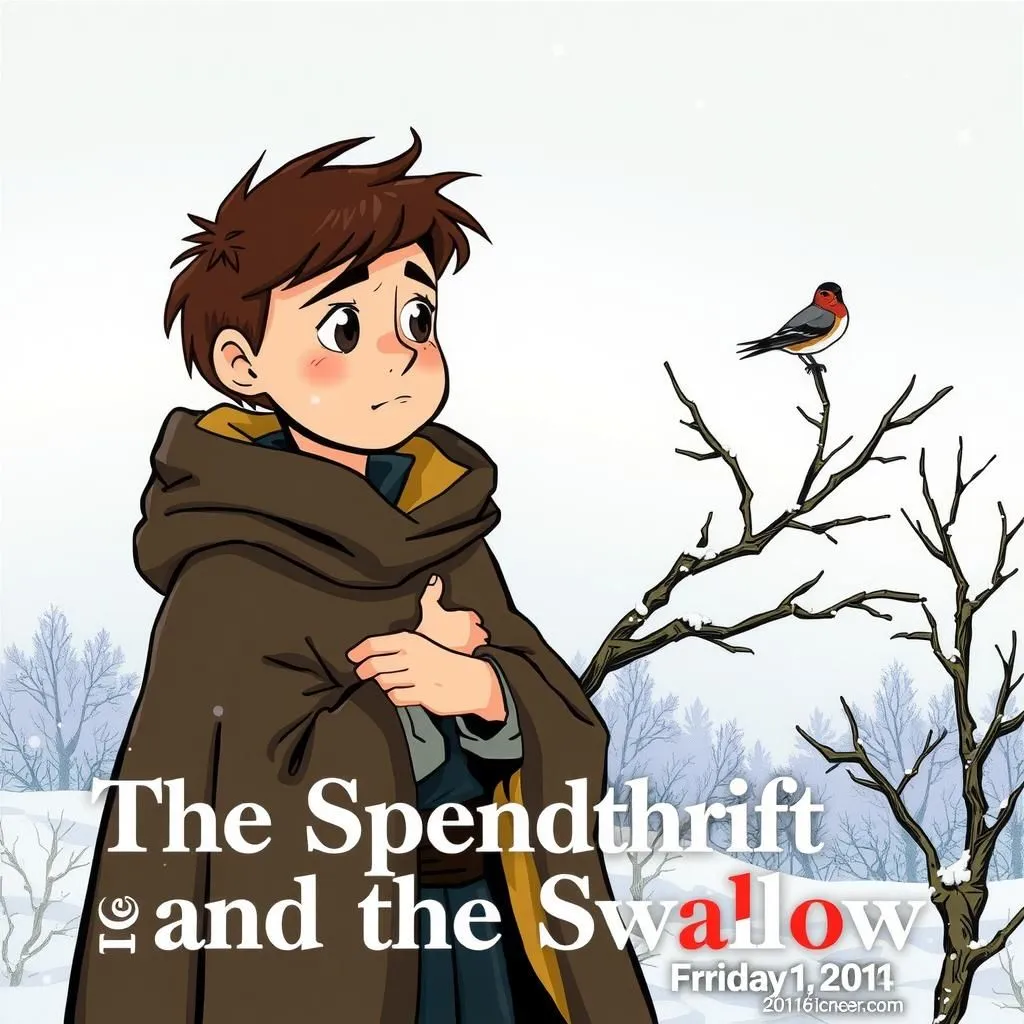
The Spendthrift and the Swallow
In this cautionary tale, a young spendthrift squanders his inheritance and, mistaking an early Swallow's arrival for the arrival of summer, sells his last cloak. When winter returns and the Swallow lies dead, he realizes that both their fates were sealed by the premature hope inspired by the bird's early appearance. This story serves as an important moral lesson, illustrating the dangers of acting impulsively and the consequences of misplaced optimism.


